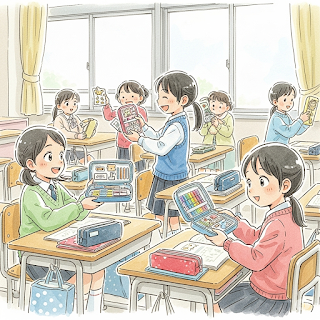A timeless dad workout challenge | 永遠のお父さんの運動挑戦

A sweaty gym comeback 汗だくのジム復活 週末、お父さんが「昔に戻るぞ!」とジムで重いダンベルを上げ、汗だくで「まだいける!」と意気込む。 On the weekend, Dad declares, “I’m getting back in shape!” and lifts heavy dumbbells at the gym, sweating profusely while insisting, “I’ve still got it!” パパ、無理しないでね! Dad, don’t overdo it! あるあるシリーズ『お父さん編』 Dad quirks series. ありがとう、パパ 世界で一番大切な人 Thank you, Dad. You mean the world to me Copyright © octopus0 What +α All Rights Reserved. これらのあるあるも気になるよね...❤️ | read more ...。



